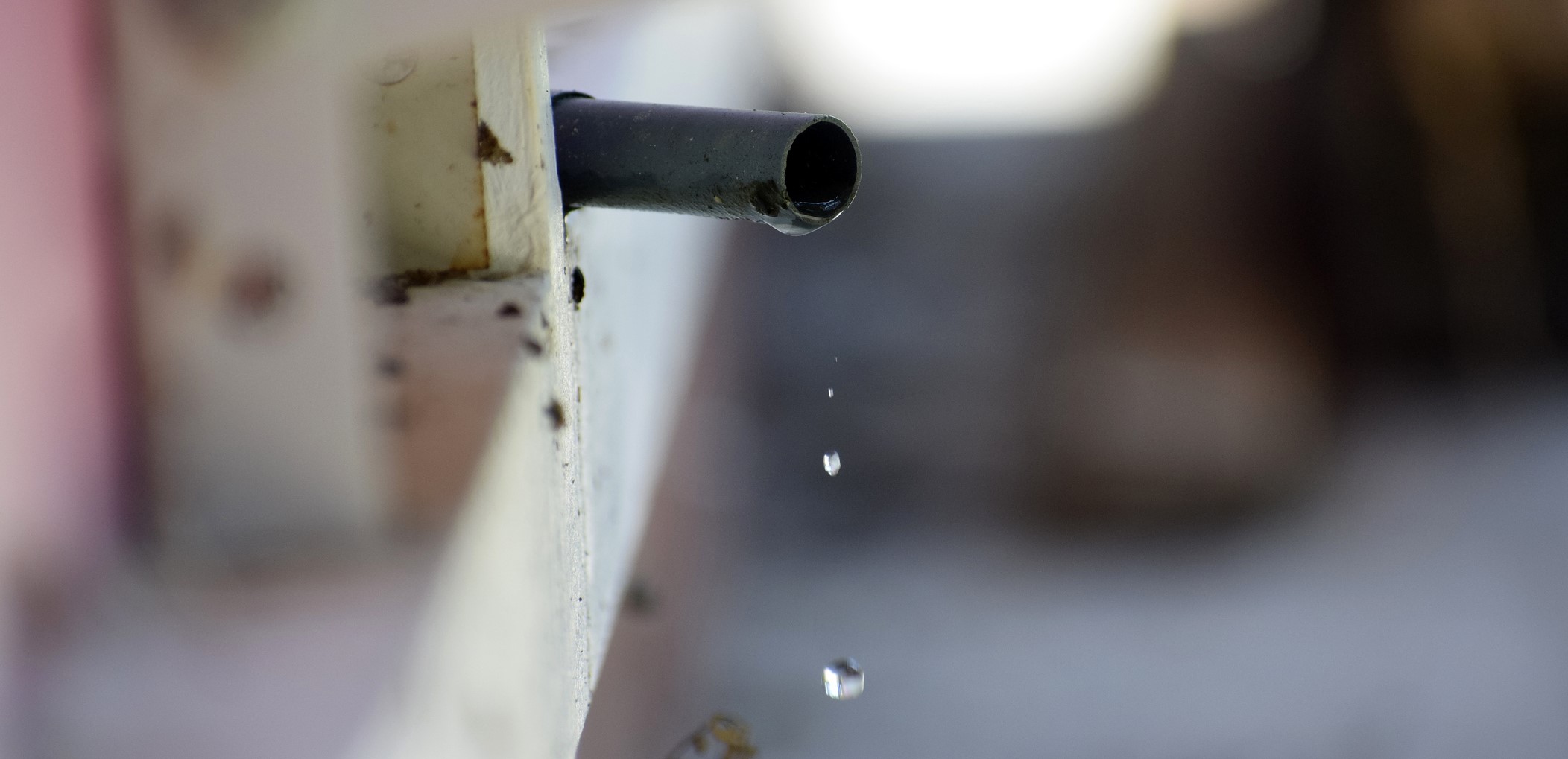As a homeowner, are you aware of the causes that trigger air conditioner leaking incidents?
Understanding How Your Air Conditioner Works
First, you should know that every AC unit has an evaporator coil. The purpose of this element is to cool the warm air blown over it. Essentially, this is likely to trigger condensation on the coil, much like the way water droplets form on a cold glass of water in a warm environment.
Eventually, the moisture on the coil ends up dripping into a drain pan, down a condensate drain line, and then end up in your home. So, what are the primary causes behind an AC leak?
Let’s look at a few of the causes that trigger air conditioner leakages.

Clogged Condensate Drain Line
Problems with the condensate drain line are quite common. Therefore, you should address them as soon as you notice the air conditioner leaking water. The drain line represents the first suspect when you’re dealing with water leaks. In the event it becomes clogged due to debris and dirt, the clog will lead to leaks or ruptures of the line.
Another common scenario is that the drain line isn’t securely connected. This could happen if the installation wasn’t done carefully. Due to vibrations, the drain might be loosened, which will inevitably lead to the AC leaking water in your home.
Now, considering that the drain line has been clogged with dirt and debris, unclogging the line is a must. It’s best to request the assistance of a professional before the situation becomes worse. For your convenience, HouseClap offers licensed AC repair services in Accra.
Pan and Pump Issues
If your air conditioning system is situated in a basement, this could lead to additional issues. The drain line is likely to empty the condensate into a drain pan. Then it’s redirected by a condensate pump.
If this type of setup sounds familiar to you, then you’re most likely to experience an AC leaking water, and this can happen in different ways. The most common are the following:
- The condensate pump has broken down, leading to the overflowing of the pan, or
- The older drain pan has developed rust while having developed holes and cracks
If you’re handy and no stranger to household projects, you could attempt to replace the rusted pan yourself, granted you know what you’re doing. Otherwise, Easy AC’s certified AC repair technicians are standing by to provide some of the quickest, most reliable 24-hour AC repair services.

Dirty Air Filter
Another common cause of an AC system that leaks water is a dirty air filter, which will block the airflow over the evaporator coil. If this occurs, the evaporator coil will imminently get too cold, and in some cases may freeze over. When the melting process starts, it will drip a significant amount of water that’s nearly impossible for the pan to handle.
Be careful with the air filter. Change it if you see signs that it’s dirty. As a rule of thumb, the air filter should be changed every 1-3 months, depending on the season.
Low Refrigerant
Just like a dirty air filter will jeopardize the performance of your air conditioning system, the same can be said about low refrigerant. This will diminish the pressure in the system and the evaporator coil will freeze. When the coil eventually melts, the water will overflow the drain pan and leave you with a leaking air conditioner.
When you’re low on refrigerant, you’ll notice that the AC system doesn’t have a top-notch cooling efficiency. There’s also the likelihood of hearing an incessant, hissing or bubbling noise. In some cases, when the situation is more severe, you might need to replace the air conditioning unit altogether. In other cases, repairing the leak will do, granted it’s not too severe.

Fix Your Air Conditioner Leaking Water Today by booking a Verified Ac technician to work on your AC unit.
Don’t overlook the importance of maintaining your AC unit. For example, as opposed to waiting for the condensate line to get clogged, you should clear it out on a regular basis. Deter the unwanted accumulation of mildew, slime, and other elements that could jeopardize the functionality of your unit. As soon as you notice any water leaks or malfunctions with your unit, refer back to this article to help determine the cause of the problem.

